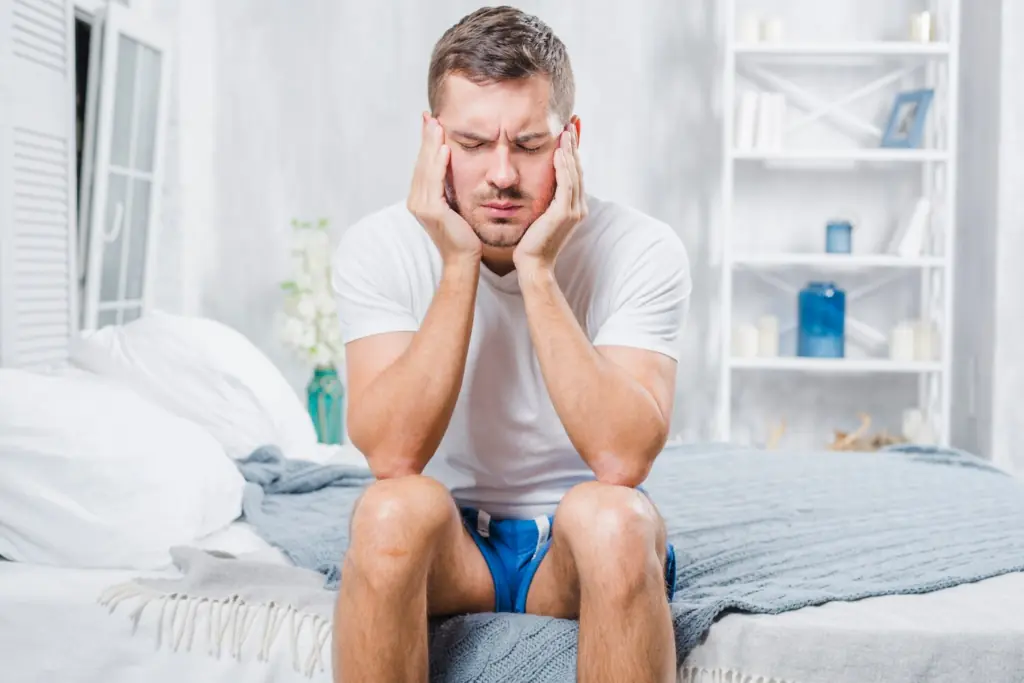Feeling tired all the time? Struggling with mood swings or a lack of motivation? If you’re a man experiencing these symptoms, low testosterone might be the hidden cause. Testosterone, often referred to as the “male hormone,” plays a key role in maintaining energy levels, mental focus, mood stability, and sexual health. When testosterone levels drop, it can impact both your physical health and emotional well-being.
For men dealing with erectile dysfunction alongside low energy, medications like Cenforce 200 mg and Vidalista 60 mg can help improve sexual performance. However, understanding and addressing low testosterone (Low T) is essential for restoring overall vitality.
In this blog, we’ll explore how low testosterone affects your energy, mood, and sexual health—and what you can do about it.
What Is Testosterone and Why Does It Matter?
Testosterone is a hormone produced mainly in the testicles. While it’s best known for supporting libido and sexual function, testosterone also influences:
-
Energy and stamina
-
Muscle mass and strength
-
Bone density
-
Mood and mental focus
-
Red blood cell production
In short, testosterone keeps you feeling strong, confident, and motivated.
Signs of Low Testosterone
Many men don’t realize their everyday struggles could be related to declining testosterone. Common signs include:
-
Constant fatigue
-
Reduced motivation or drive
-
Irritability or mood swings
-
Depression or feelings of sadness
-
Difficulty concentrating
-
Low libido or sexual desire
-
Weaker erections or erectile dysfunction
-
Decreased muscle mass
If you’re ticking several boxes, it’s worth discussing testosterone testing with your healthcare provider.
How Low Testosterone Affects Your Energy
One of the most common complaints among men with low T is feeling exhausted—even after a good night’s sleep. Testosterone affects your metabolism, muscle recovery, and oxygen use in the body. When levels are low, your body struggles to produce energy efficiently, leaving you feeling drained both physically and mentally.
How Low Testosterone Impacts Mood
Low T doesn’t just affect your body—it affects your mind too. Many men report:
-
Frequent mood changes
-
Increased feelings of frustration
-
Lack of interest in activities they used to enjoy
-
Low self-esteem
These emotional shifts can be confusing, especially if you’re unaware that hormone imbalance might be to blame.
Low Testosterone and Sexual Health
Testosterone plays a direct role in maintaining healthy sexual function. When levels drop, men often experience reduced libido and weaker erections. This can be frustrating and lead to relationship stress.
For immediate help with erectile dysfunction, medications like Cenforce 200 mg and Vidalista 60 mg are commonly prescribed:
While these medications help with ED symptoms, they don’t address the root hormonal imbalance—so it’s important to consider both short-term relief and long-term solutions.
Causes of Low Testosterone
Several factors can lead to declining testosterone levels, including:
-
Aging (testosterone naturally drops after age 30)
-
Obesity or poor diet
-
Lack of exercise
-
Chronic stress
-
Sleep disorders
-
Medical conditions like diabetes or thyroid issues
-
Certain medications
Even young men can experience low T due to poor lifestyle habits or health problems.
How to Boost Testosterone Naturally
If you’ve been diagnosed with low testosterone, your doctor might discuss testosterone replacement therapy (TRT). However, natural lifestyle changes can also help boost your levels, such as:
-
Exercise Regularly – Weight training and high-intensity interval training (HIIT) are especially effective.
-
Improve Your Diet – Focus on lean proteins, healthy fats, and plenty of vitamins and minerals like zinc and vitamin D.
-
Get Enough Sleep – Aim for 7-9 hours per night, as poor sleep lowers testosterone production.
-
Manage Stress – Chronic stress increases cortisol, which lowers testosterone. Try meditation or breathing exercises.
-
Maintain a Healthy Weight – Extra body fat converts testosterone into estrogen, reducing your levels further.
When to Consider Medical Help
If lifestyle changes aren’t improving your symptoms, your doctor might suggest:
-
Testosterone Replacement Therapy (TRT)
-
Medications to manage erectile dysfunction, such as Cenforce 200 mg or Vidalista 60 mg
-
Addressing underlying health issues like diabetes or thyroid problems
It’s important to avoid self-medicating or using testosterone supplements without medical supervision, as improper use can lead to side effects like infertility or heart risks.
Final Thoughts
Feeling tired, moody, and unmotivated doesn’t always mean you’re just “getting older.” Low testosterone could be silently affecting your energy, mood, and sexual health. Recognizing the signs and seeking help can change your life.
For men struggling with erectile dysfunction due to low testosterone, treatments like Cenforce 200 mg and Vidalista 60 mg offer fast, effective relief while you work on balancing your hormone levels naturally or through medical treatment.



